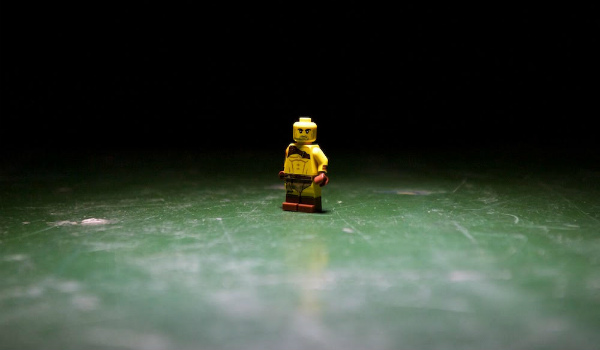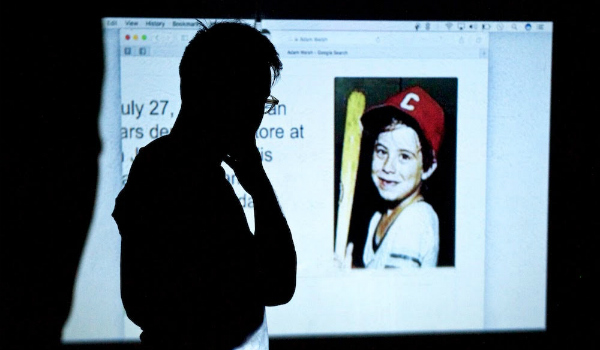Timothy Trimingham Lee is associate director and dramaturg for There but for the Grace of God (go I) by Adam Welsh. Adam is co-founder and associate artist of award-winning collective Dead Centre. There but for the grace of God (go I) spans autobiography, true crime reenactment, and self Googling as it playfully investigates the connection between a young actor searching for meaning in obscurity and a child who would become famous for being missing.
…that hope is not a thing
with feathers that hope is a thing with a fist a thin
crust sketched over oceans that hope is what despair
uses for bait come in hope says the water’s fine
that hope is the blood with which you write letters
that start dear sea dear ocean stop asking so fucking
much…
— Leslie Harrison
What if one day you Googled yourself and found someone else?
When we describe using the internet, the term “searching” is often used. There is an active investigation of documents. Or maybe we are “surfing” on the waves of a sea of images, gifs, words, videos, and numbers. Both are active pursuits, yet one is targeted, perhaps, on an outcome, while the other implies travelling over bridled yet potentially hazardous elements.
As theatre makers, we can find odd places for the beginnings of an artistic process. Often that place these days is the internet, the labyrinth to be searched or the ceaseless, unpredictable sea. Adam Welsh found a story in his computer and that story led him to examine his own. We have an instinctual attraction for narrative and yet we often rarely stop to unspool our own development and how closely our parents play a part in the weaving of it.
Adam sent me an early draft of There but for the grace of God (go I), which I struggled to connect with. It turned out there was an earlier draft that was more revealing in his hunt for self as he researched the disappearance of a child an ocean away. The material was brave and personal and uncertain. It communicated the disorientation we often look to find in art that so mirrors our own in life when we allow ourselves to feel it.
I was so happy to work with Adam on There but for the grace of God (go I), because it often felt like we didn’t know where we were going as we explored form, the conversation between current and outmoded technologies, and the gulf between both parents and children and the living and the dead. The journey was scary but enervating as we unpacked how we choose to remember what we’d rather forget, gave voice to long buried feelings, and attempted to find meaning in the seeming cruelty of fate.

How did we ever survive childhood? Thinking back to years of stumbles, bruises, collisions, near misses, screeching brakes, stings, clashes, bites, and falls, any of us is likely to muse on consequences never realised or dooms escaped. There can be a seeming arbitrariness to survival. Growing up can feel inadequate in its everyday accretion of minutely alarming problems versus the clean oblivion of tragedy striking us out of existence.
In making There but for the grace of God (go I), we were curious about how the reality of criminal investigatory procedure becomes illusory in the reenactment via the televisual. We wondered if live reenactment of recorded media may lead to truth through a layering of fictions. We pursued epiphany through a collage of voices, footage, poems, and even Lego. We learned there are connections where we are patient enough to find them. We found that the missing never really go away. And we discovered that childhood cannot be shed even if home remains elusive.

